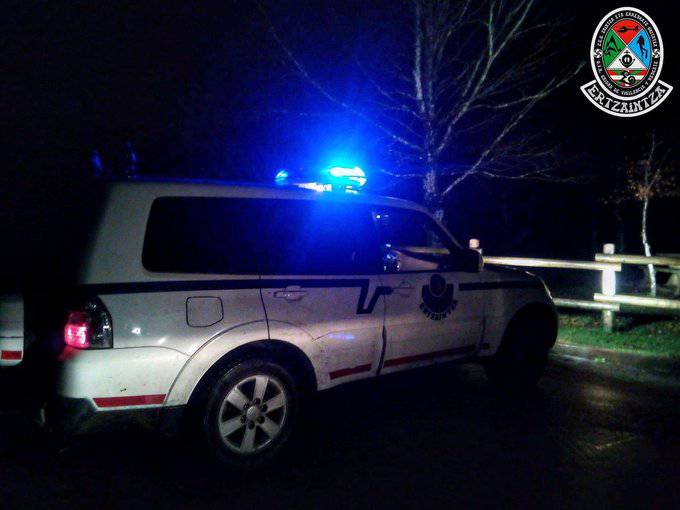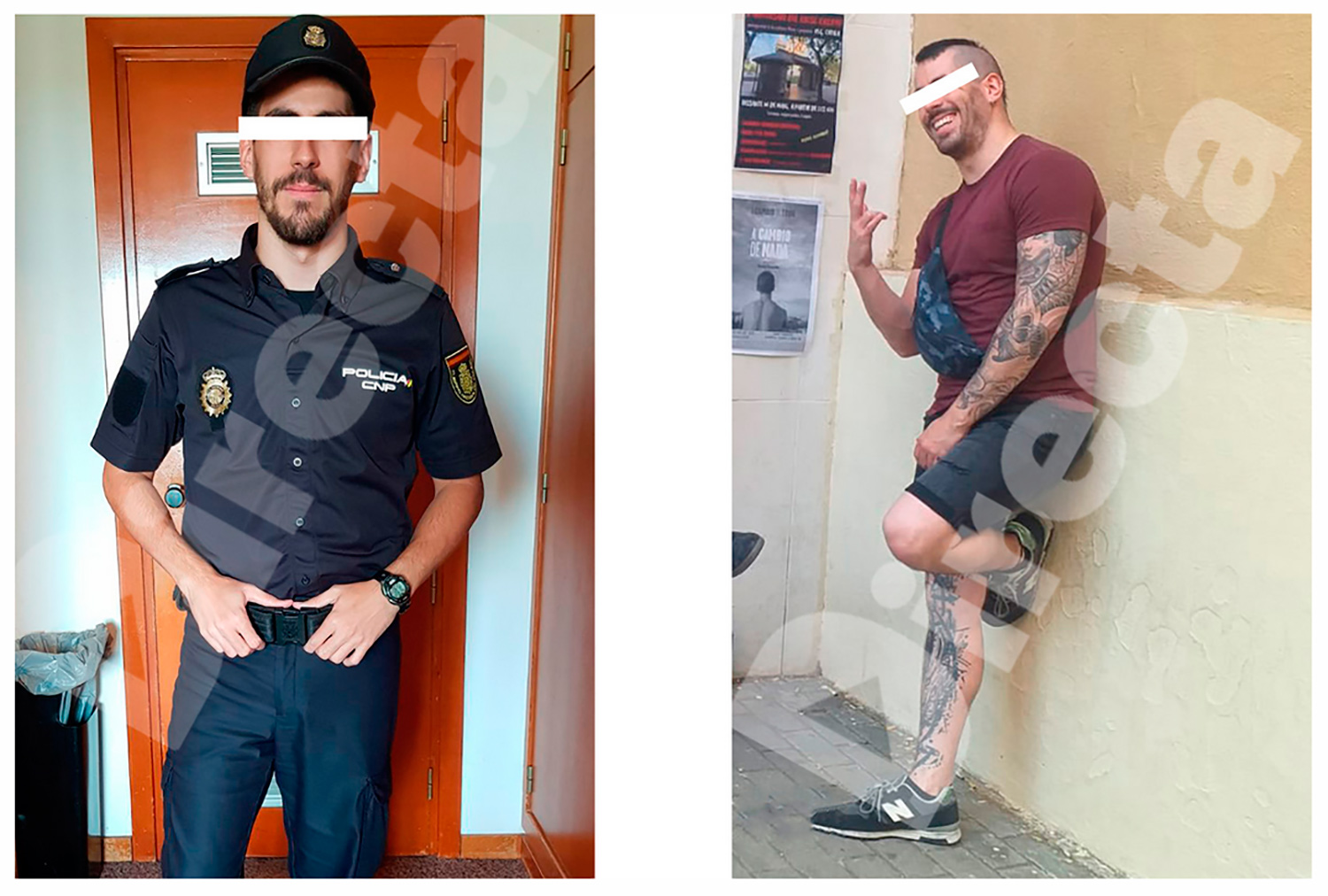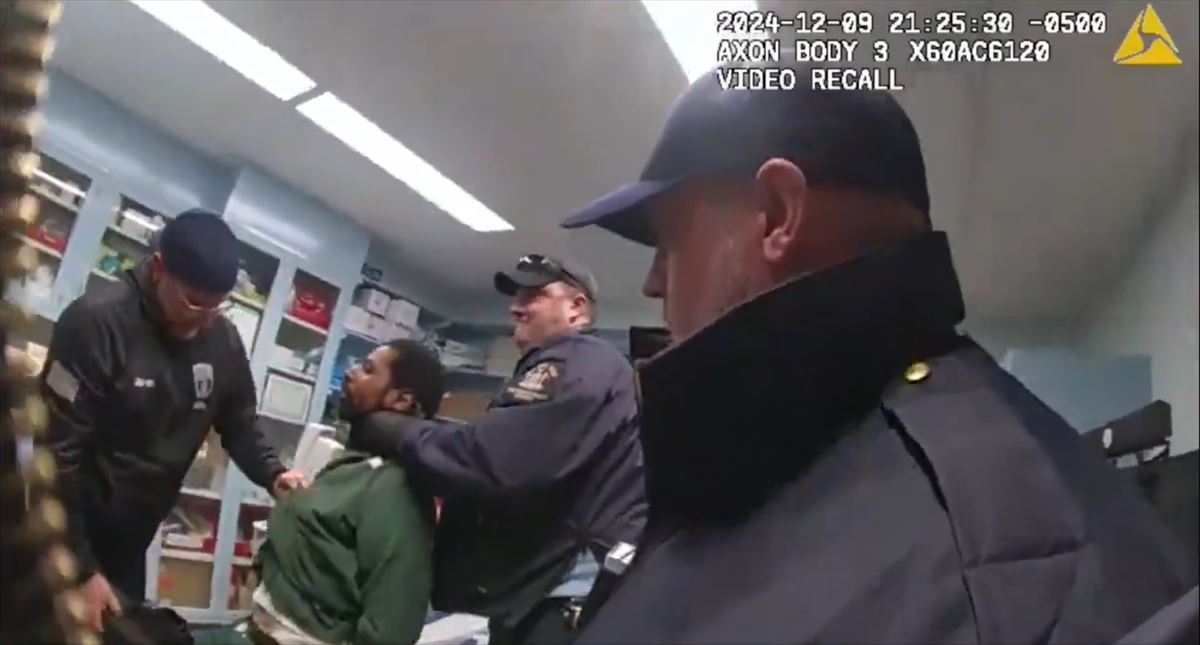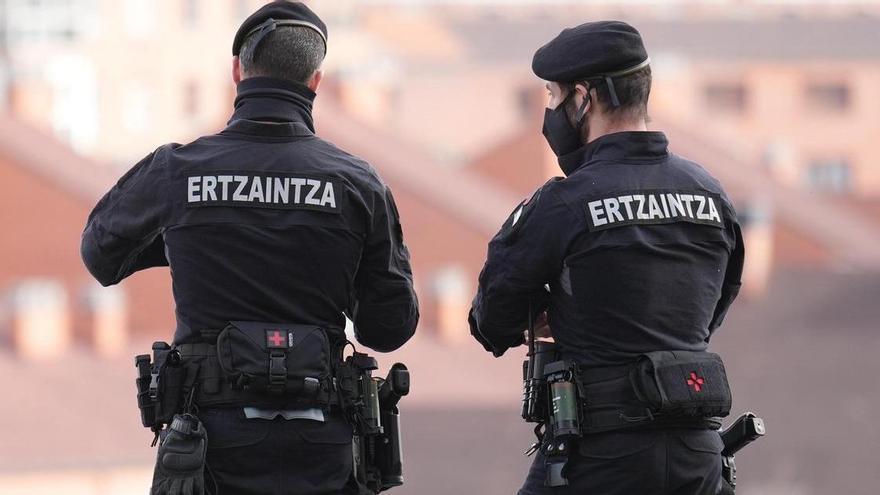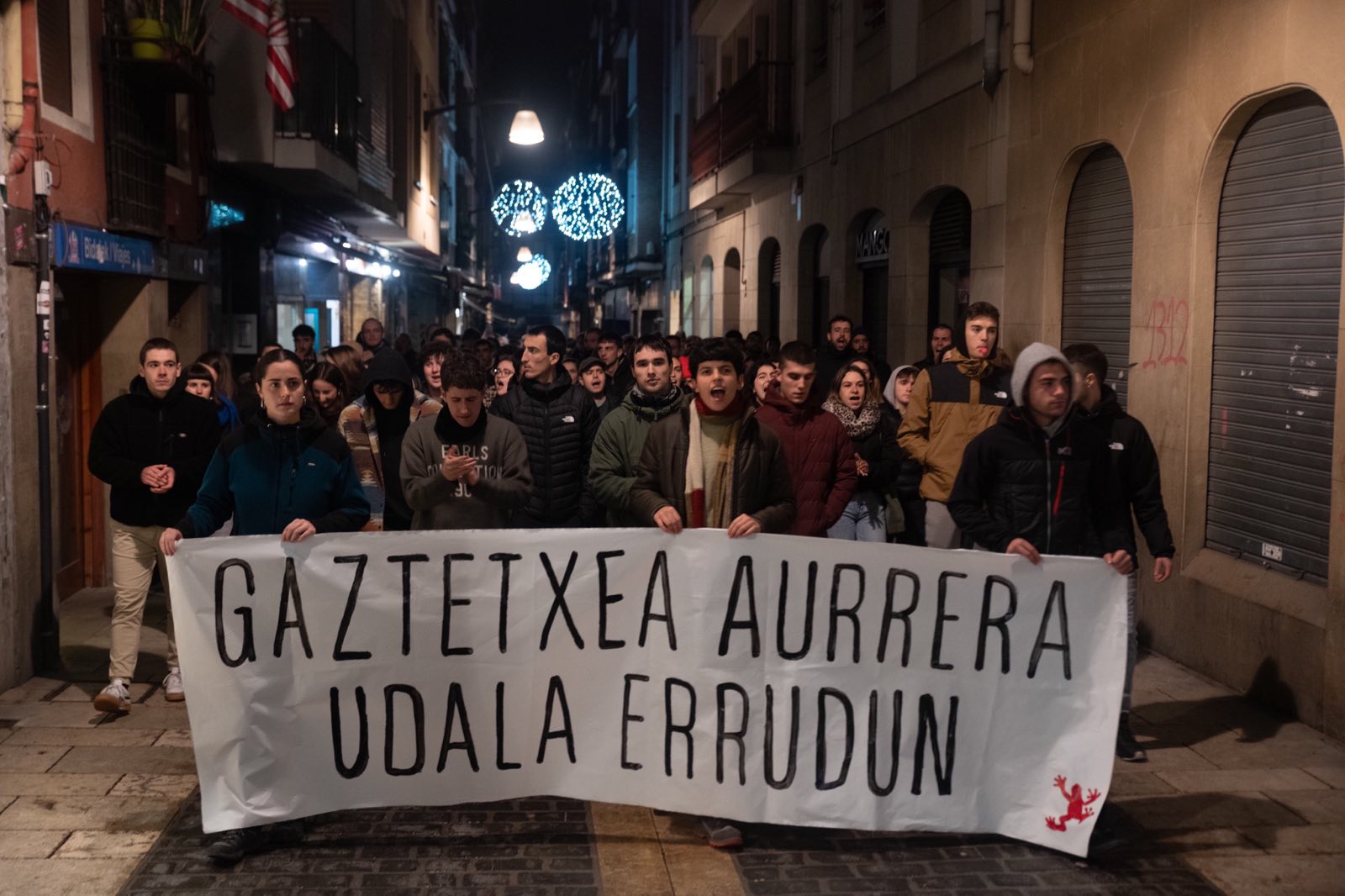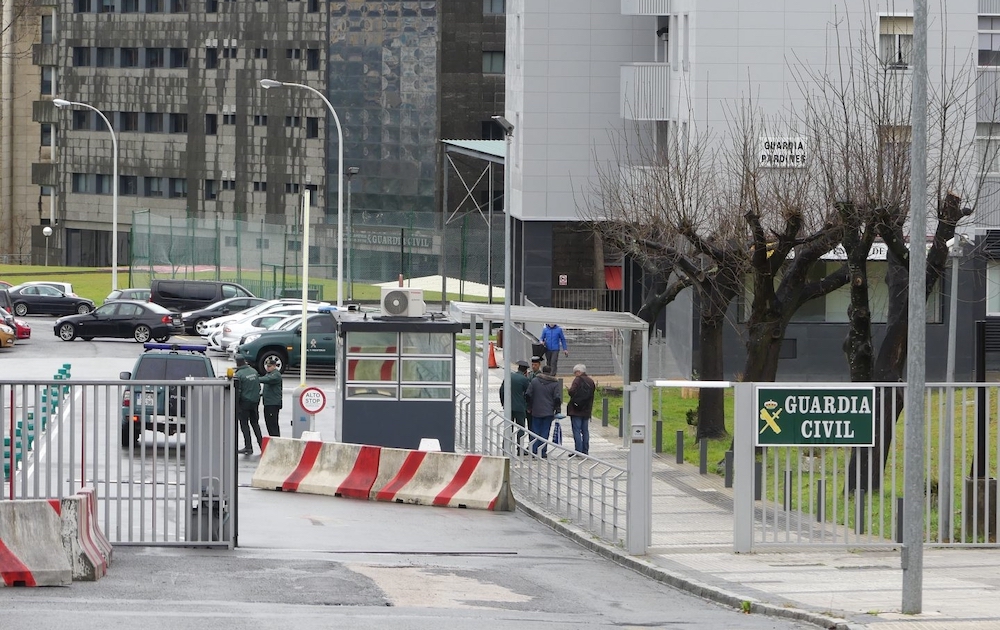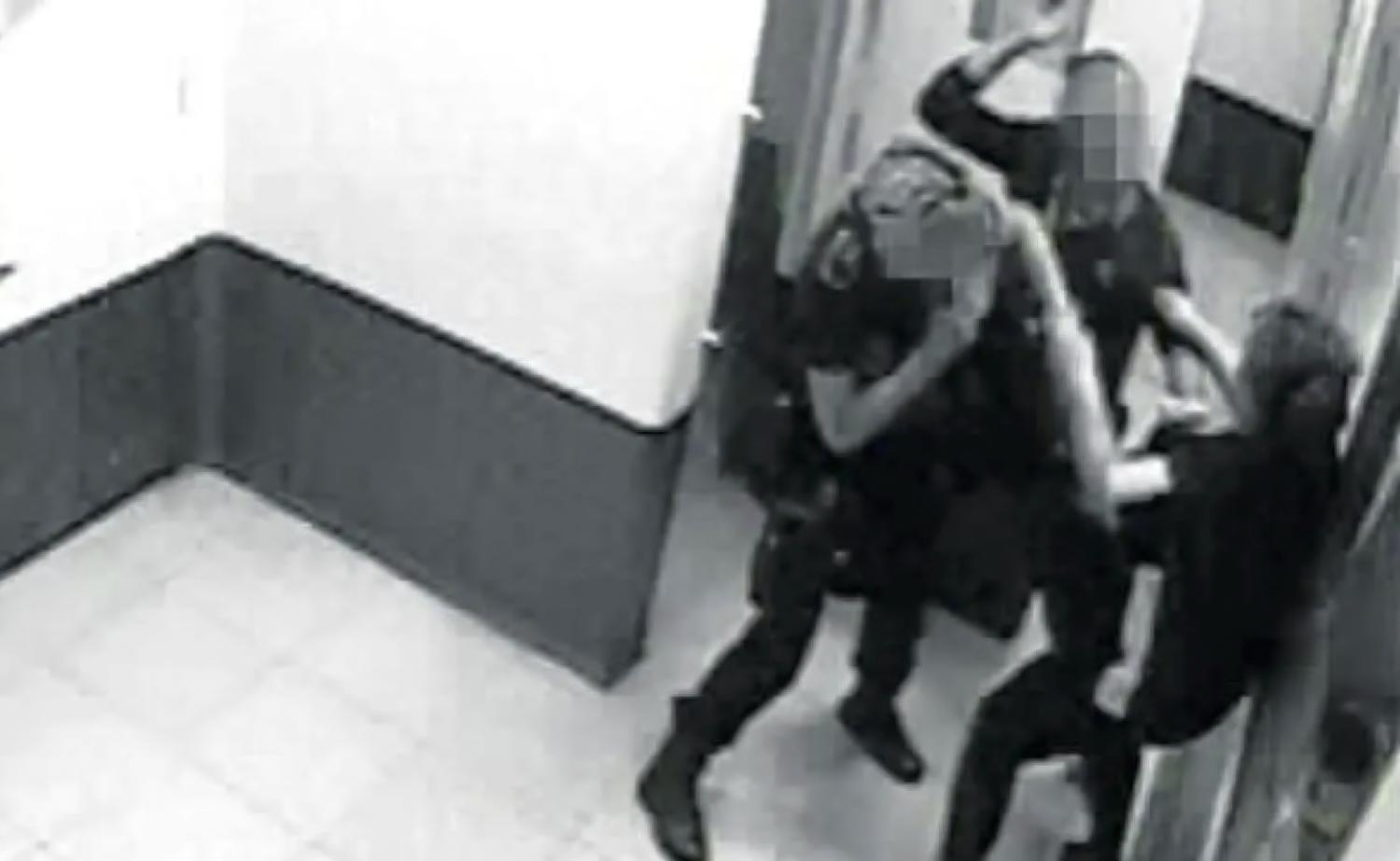"We have to recognize that police infiltrations are repressive practices of the state."
- Last weekend, members of the youth group Distrito 14 de Moratalaz (Madrid) met in Alsasua (Navarra), within the framework of the Eguna Spa. There has been talk of police infiltrations in recent years, with which the Gedar Langile Kazeta has also been able to speak. We have talked to them about police espionage, the way in which the topos operate, the infiltrations suffered by other political and social groups, the teachings, the response to cases that have come to light and the repression of the State, among others.

What was District 14 and what were you working there?
District 14 was a group of young people born under the general strike of November 2012 and the occupation of a social center in the neighborhood of Salamanquesa. Among its objectives were the organization of the young worker of the neighborhood, coordination and organization with the other youth groups at the neighborhood level, as well as awareness-raising actions and identification of problems such as evictions, gender violence, anti-capitalism, betting houses, anti-fascism, anti-racism, homophobia, etc.
How many police infiltrations have you suffered in recent years?
Live, and we know today, two. One between 2014 and 2021 and then its "relay", between 2020 and 2022.
What would you point out about these infiltrations? For example, on the way topos act and their infiltration work.
One of the things we always highlight is that of the "red lines." In other words, we, as militants, have always thought that there were limits, which automatically ruled out the possibility of an infiltrate. For example: having a real physical ID, having affective sexual relations with the militants, knowing the real family, working with the contract, visiting the house... All these "red lines" have been overcome both in our case and in other cases that have so far been revealed.
It should also be noted that in these cases common models can be observed (friendly attitude and flight of controversy, very low political knowledge, very active militant profile, especially regarding "dirty work" related to logistics, etc. ), but that each had its own particularities to adapt profile, history, etc.
The infiltrations suffered by the group District 14 have not been the only ones that have been published in recent years.
That is true. There were two cases in Barcelona (José Ignacio y Dani), one in Girona (María), one in Valencia (Ramón) and two in Madrid (Lucía y Mavi). Surely they will not be the only ones, and we have to be prepared for them to come out more. One of the things we recommend to the entire militancy is to read the articles published on each case, because there are many common details and models that can be used to detect more cases. Although our intention is to flee from paranoia, it is important to look at all of this.
In most cases we are in contact, both to help and to carry out a work that can serve the militancy to manage cases of the future, both in the emotional and political spheres.
What role do infiltrations and these types of control and persecution mechanisms play?
We believe that the main goal is to get information: how we operate internally, which militants are more active, with which organizations and how we interact, etc. It is precisely one of the recently published information that the infiltrates received in some cases biological samples from militants, especially those who came to live and have affective sexual relations.
Similarly, although indirectly, they manage to generate fear, paranoia, mistrust and insecurity in organizations and among militants. In short: control, repression, gathering of information, etc.
In the case of published infiltration cases, what was the answer?
At the institutional level, the reactions of the progressive political parties to the left of the PSOE have been as expected: hypocrisy, empty messages and attempts to use cases in their institutional strategy.
To give concrete examples, Podemos has shown its "indignation", but has not made "self-criticism" or "nothing" in relation to the fact that in some years of police infiltration it was part of the government.
Summing up, on the part of the United Left and Bildu, attempts have been made to use these cases to draw electoral and political returns, and in no case have they approached the groups concerned to offer them assistance, as a way of compensating for the support to the governments that promote infiltrations.
On the part of the Government and the PSOE, what was expected is silence in general, and support these practices and the police on the few occasions when the subject has been publicly discussed.
Outside the institutional world, it is true that expressions of solidarity have been many and we are very grateful, although, unfortunately, this has not been the case in all our militant environments.
We believe that much remains to be learned and assimilated on this type of repression, both in terms of organisations in general, and in terms of militants in particular and more directly. And also in terms of their management, both before and during and after.
What have you learned and what lessons should be drawn from any revolutionary movement and militant?
We would almost need a book to answer this question, but as a paintbrush:
- Recognition of police infiltrations as repressive state practices.
- Accept that these things have happened, they are happening and they will continue to happen.
- It is essential to bring the infiltrations to light, particularly on a security issue.
- As cases are extracted, common patterns are observed that serve to create tools and mechanisms for prevention and research. It is an essential militant task to convey everything we learn from it to the generations that come from behind.
- Making demands or demands on the State to "put an end to" these practices is pointless: they will not fail to do something that benefits them.
- Militancy has the capacity and the duty to manage and investigate these cases. In fact, if we are now more up to date on these practices, it has not been for the institutional aspects of always trying to put medals; it has been for the militant work of many members in the shadows.
- To flee the role of mere victims and turn them into active political subjects.
Jar gaitezen 2025erako proposamen politiko gisa, Espainiako Auzitegi Kolonialaren (AN) epai guztiak berrikusten hasteko eta makila bakoitzak bere belari eusteko.
Unionismoarekin lerrokatutako alderdi, sindikatu eta gizarte-erakunde gehienek, eta ez bakarrik horrela... [+]
This year marks the 51st anniversary of the United Nations proclamation of International Human Rights Day on 10 December. This date has become important in Euskal Herria and the Human Rights Observatory of Euskal Herria wants to offer some elements of reflection.
Progress on... [+]
In 2006, Baltasar Garzón, then star judge, suffered a kind of revelation and drafted a practice that guaranteed the rights of those detained for terrorism. The same judge saw hundreds of incommunicado detainees pass through his room, many with obvious signs of ill-treatment,... [+]









